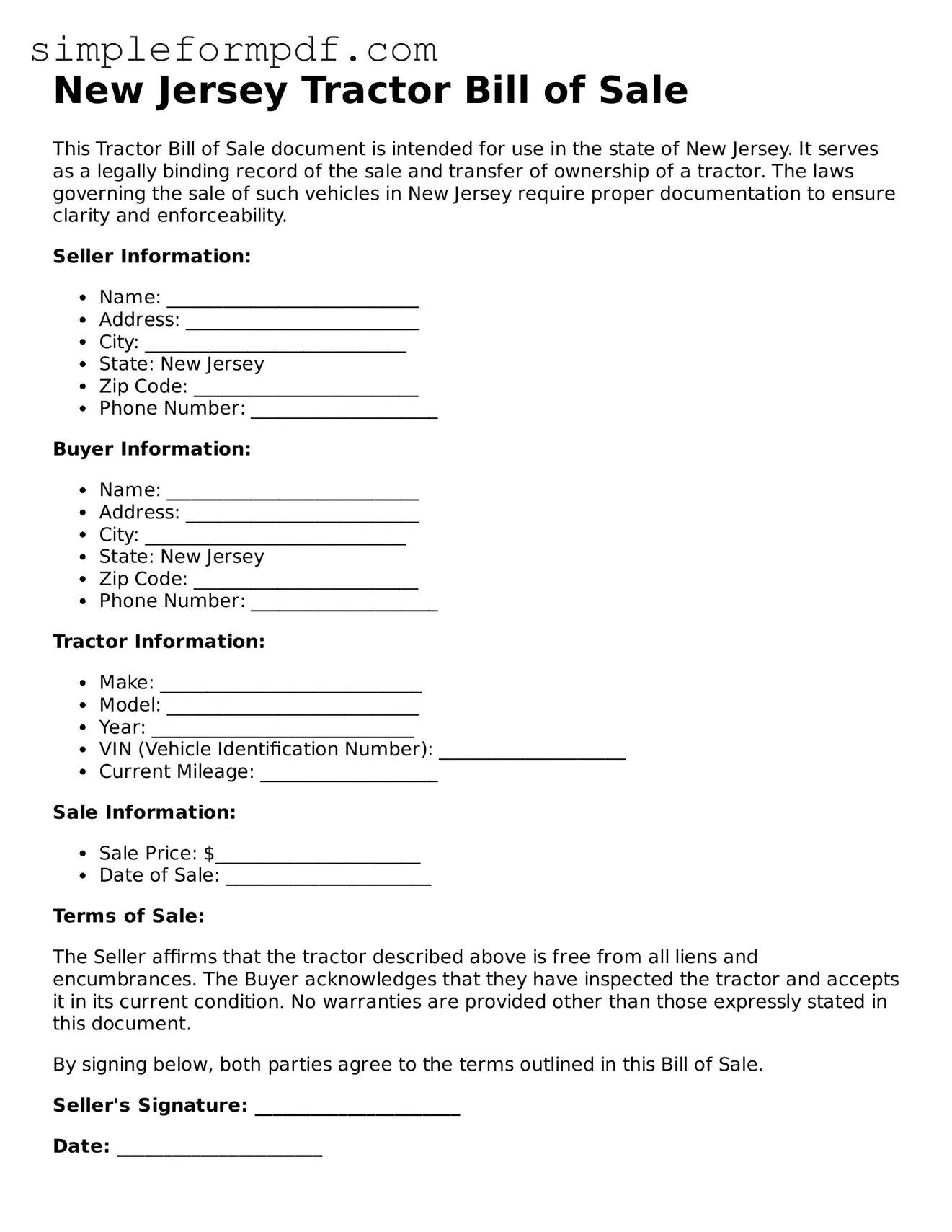Free Tractor Bill of Sale Form for the State of New Jersey
The New Jersey Tractor Bill of Sale form is a legal document that facilitates the transfer of ownership for a tractor from one party to another. This form serves as proof of the transaction and includes essential details such as the buyer's and seller's information, tractor specifications, and sale price. Ensuring proper completion of this form is crucial for both parties involved in the sale.
To proceed with your transaction, fill out the form by clicking the button below.
Launch Editor

Free Tractor Bill of Sale Form for the State of New Jersey
Launch Editor
Need instant form completion?
Finish Tractor Bill of Sale online in just a few minutes.
Launch Editor
or
Download PDF
